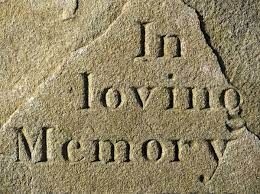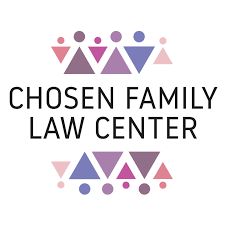Polyamory
Queer Families Need Planning for Loved Ones’ Deaths
Queerplatonic, polyamorous, and other alt-families require extra planning.
Posted October 14, 2023 Reviewed by Ray Parker
Key points
- Queer families face unique challenges when it comes to death planning and end-of-life care.
- Queer families need to discuss their wishes for end-of-life care with their loved ones.
- The National Home Funeral Alliance offers a free ebook on planning and hosting a home funeral.

With the arrival of “spooky season” comes the inundation of skeletons, gravestones, ghosts, and other death-related images intended to evoke costumed candy comas—and also useful for practical discussions.
It is no fun to think about dying; even considering talking about it can make it seem like a great time to clean out the garage or the closet. Failing to discuss death planning, however, can create significant difficulties for surviving loved ones who must manage the aftermath of their loved one's death.
Because the laws and policies of the United States were designed with monogamously married heterosexuals in mind, they are often a poor fit for other kinds of families and relationships. This places an unfortunate extra burden on people in diverse relationships in an already difficult time, who are then required to navigate systems that were not intended to work for them.
For example, the Family and Medical Leave Act application for time off work to care for a sick loved one restricts eligibility to parents, children, and spouses and will not cover someone to care for a metamour (someone who is a polyamorous partner's partner, that they have no romantic relationship with) or a platonic life partner. These issues impact queer families before, during, and after a loved one’s death.
Before
Dying can come suddenly or be a longer process. Either way, if it involves medical care, there will be many decisions and issues to manage. The dying person can often not make these decisions at some point, and their legal next of kin or designated healthcare power of attorney must deal with healthcare providers and insurers.
Problems with things like hospital visitation and decisions about end-of-life care are more common for queer families because hospital staff and administration might not interpret their relationships as legitimate and refuse access. This has proven an uphill battle for LGBTQ+ families, who sometimes need court orders to compel hospital staff to recognize legal documents detailing the family ties. The lack of institutional categories that fit the family relationships can also prove problematic for insurance companies dealing with someone else besides the insured.
During
Regarding death, what happens can depend mainly on where the person is and who else is present. Depending on visitation hours and other restrictions, if the loved one is dying in a hospital, there might be a few select people or no one present.
Medical staff can determine who they view as a legitimate family member qualified to receive information, test results, and procedure updates. Finally, queer families are sometimes marginalized when doing the legal paperwork associated with dying. Again, the authorities may or may not view the chosen family members as legitimate family representatives able to complete paperwork.
After
Many people are unaware of a host of postmortem tasks until it comes time to manage them. Who will plan the funeral? Who will be invited to attend? Who will be allowed to speak?
These considerations can be especially significant for transgender people who want the dignity of their correct gender, even in death, and do not want to be misgendered or referred to with a dead name.
What happens to valuables — not only the liquid assets but the 401k accounts, property, homes, vehicles, jewelry, art, and other items? If the recipients have not been identified, there can be considerable disagreement over how to distribute the remaining possessions of the deceased.
Who should get custody of children and pets? Children will go to a surviving parent, legal guardian, or the closest living relative unless otherwise precisely documented. If the parents wish the children to go to someone else, they must carefully document those decisions and be prepared for challenges if "biolegal" family members want them.
Pets similarly go to either the legal heir of the deceased, the people currently caring for them, or a shelter if there is no one to adopt them. It can be difficult if the deceased did not make their wishes for the pet's custody clear and multiple people want to adopt the animal.
These issues can be especially problematic for people who did not have a legally recognized relationship with the deceased but were nonetheless quite intertwined with each other. Even if they lived in a spouse-like relationship and did all of the spouse's things, if there was no legal marriage, the deceased's partner cannot apply for Social Security or other financial benefits automatically awarded to a monogamous spouse.
They might lose their housing or have difficulty getting custody, visitation, or financial support for their children. Socially, an unrecognized family member is often left to grieve the loss of their loved one in private and either can’t talk about their grief or are actively dismissed for not getting over the death of their “friend.”
Help for Chosen Families
Navigating the difficulties of death can be hard enough without the added burden of dealing with poorly constructed regulations and social prejudice. Luckily, there are some resources to help diverse families who want to prepare for their loved one’s passing.
For practical help, the National Home Funeral Alliance offers a free ebook on planning and hosting a home funeral. Some attendants assist people with death planning, such as death doula Isabel Knight, who specializes in serving LGBTQ+ and consensual non-monogamy (CNM) families.
Knight recommends that queer families take these three steps before a loved one dies:
- Complete an advanced directive, which allows a person to specify how they would like to receive care as they are dying and what care they would like to receive. Advance directives are also the way to designate someone with healthcare power of attorney.
- Anyone who wants to designate someone else besides their legal next of kin as the manager of arranging their funeral and disposition (i.e., cremation, burial, or alternative disposition) should fill out a Declaration of Final Disposition form designating the person they want to perform these tasks. If there is no form specifying otherwise, by default, it will fall to the legal next of kin to arrange the funeral and disposition of the remains however they see fit.
- From a password manager to a written list, ensure that, post-death, carers can access account information. Managing many practical matters, like turning off a phone or gas service, requires access to an email account. Basic tasks can become complex for people handling postmortem affairs, but access to passwords and accounts can make it significantly easier.

Knight pointed out that people with diverse relationships must plan because they build chosen families that might not be legally recognized.
Queer families are especially vulnerable because they tend to be more likely to be estranged from their family, they die younger than the U.S. national average, and they experience higher rates of violent victimization. While these are distressing statistics, a lack of planning can make an already tragic situation even more dire for those caring for a queer person after they die.
Families that need help with the many legal issues related to protecting diverse families should consider the Chosen Family Law Center (CFLC), which offers direct services and education for professionals and the general public.
CFLC Director Diana Adams says that the most critical thing for diverse families to do to prepare for the death of a family member is,
Have vulnerable conversations with our loved ones about who we would want to make medical decisions if in a health crisis or end of life, as well as preparing for the care and financial support of loved ones after we pass, and execute legal paperwork, including advance medical directives and a will to get these intentions in writing to provide your family with the security they deserve.
Because cost is a significant barrier for many diverse families, the CFLC provides a range of pro bono documentation services and uses donations to subsidize the legal expenses of poor and working-class chosen families.




